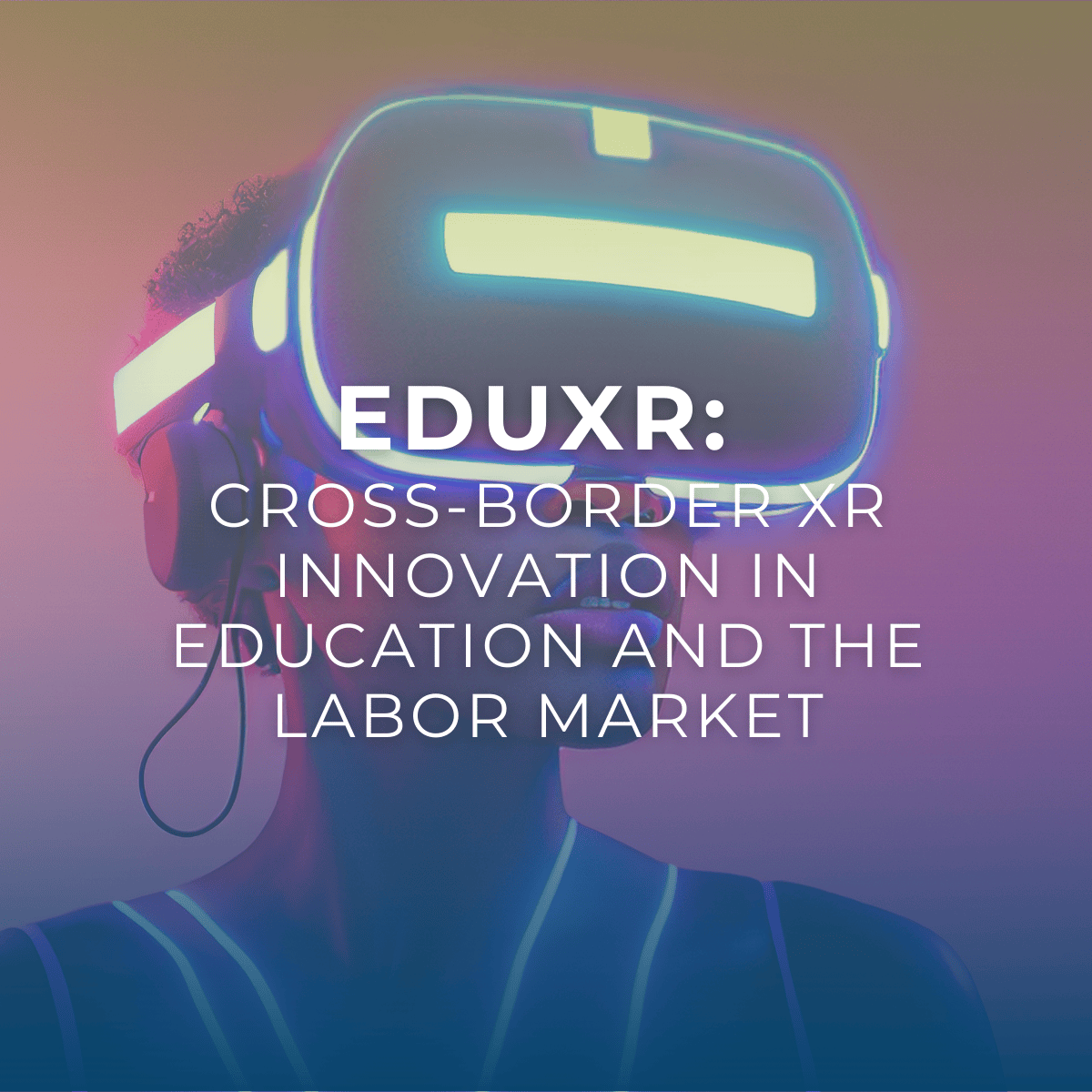EduXR Library: Cross-border innovation for future-proof education in healthcare and energy

EduXR Library: Cross-border innovation for future-proof education in healthcare and energy

Labour market shortages are a structural challenge in both the Netherlands and Flanders. In both regions, the demand for tens of thousands of additional professionals in nursing and electrical engineering is growing. For example, the Dutch Employee Insurance Agency (UWV) forecasts a persistent shortage of healthcare staff until at least 2032, while Flemish labour market projections indicate a need for at least 15,000 additional electrical engineers to achieve climate targets. This underscores the importance of innovative solutions to train and upskill people.
Extended Reality (XR), a collective term encompassing Virtual Reality, Augmented Reality, and Mixed Reality, presents unique education opportunities. Thanks to XR, students and professionals can practice in virtual scenarios that are often too costly, risky or rare in real life. This leads to higher engagement, more relevant learning experiences and enables both on-site and remote learning. Moreover, XR is particularly well-suited to optimally support people with diverse backgrounds and learning styles.
Opportunities and challenges of XR in education
Both in Flanders and the Netherlands, active efforts are underway to drive digitalisation and innovation in education, including through the XR Action Plan Flanders (2023–2025) and the national NPuls Growth Fund Program (2023–2031). However, practice remains fragmented: many training providers develop XR solutions independently, resulting in high costs, inefficient use of public resources and a strong dependency on suppliers. Applications are often not interoperable and rarely shared, causing valuable knowledge and innovation to remain within institutions.
The EduXR Library project breaks through this fragmentation. Led by partners from both countries, we are building a shared XR application library that functions across borders. The goal: to enable educators and companies to share, further develop, and widely deploy high-quality, Dutch-language XR applications in healthcare and energy. This initiative builds on national programs and fosters cooperation across national borders.
The partnership: broad, expert and future-oriented
The consortium brings together leading knowledge institutions, training providers and network organisations: Flux50, HZ University of Applied Sciences, Avans University of Applied Sciences, Regional Education Centre Noordoost-Brabant (Koning Willem I College), Syntra AB, The Future BV, Thomas More Mechelen-Antwerp, Vives North and Vives South. Each partner contributes specific expertise in XR technology, education, didactics and sectoral networks in healthcare and energy.
The project runs from 1 September 2025 to 31 August 2028. In the first year, an extensive needs analysis will map out which XR applications already exist and where the biggest gaps lie. Based on this, the partners will develop at least ten new XR applications, focusing on quality, usability and Dutch-language content. Through a shared platform, the EduXR Library, these applications can be easily shared and implemented, both in education and in industry.
Regulation and structural embedding
The project’s approach aligns closely with existing and new legislation, such as the European Lifelong Learning Directive, the objectives of the European Green Deal and the Flemish “Digisprong” initiative. By establishing agreements on ownership, funding models, and content sharing, we prevent vendor lock-in and encourage the broad adoption of XR in education. In addition, the project invests structurally in teacher training and “train-the-trainer” programs, ensuring XR is implemented responsibly and effectively.
The project will deliver semi-annual reports, host two international conferences (one in the Netherlands and one in Flanders) and implement a broad communication plan with newsletters, social media and workshops focused on knowledge sharing and community building. The result: a sustainable infrastructure for XR applications, supported by a strong partnership that will continue to foster XR growth and development in education after the project ends.
Added value for the region and the future
EduXR creates a structural improvement in access to quality education and training in crucial sectors. By scaling up and collaborating, the cost per user decreases and the learning offering becomes more inclusive, with special attention to Dutch-language content. This is particularly important for students and workers who benefit from instruction in their native language. By linking to the ambitions of the National Growth Fund, the Flemish XR Action Plan and the European Digital Education Action Plan, the project directly contributes to achieving societal objectives in innovation, energy transition and sustainable labor market development.
Would you like to know more about this initiative or contribute to our mission? Contact us via our website or join our dynamic team. Together, we are building a sustainable future!
Financing
This project is made possible by the European Union, EZK, VLAIO and provincial co-financing from the provinces of North Brabant, Flemish Brabant and Antwerp.